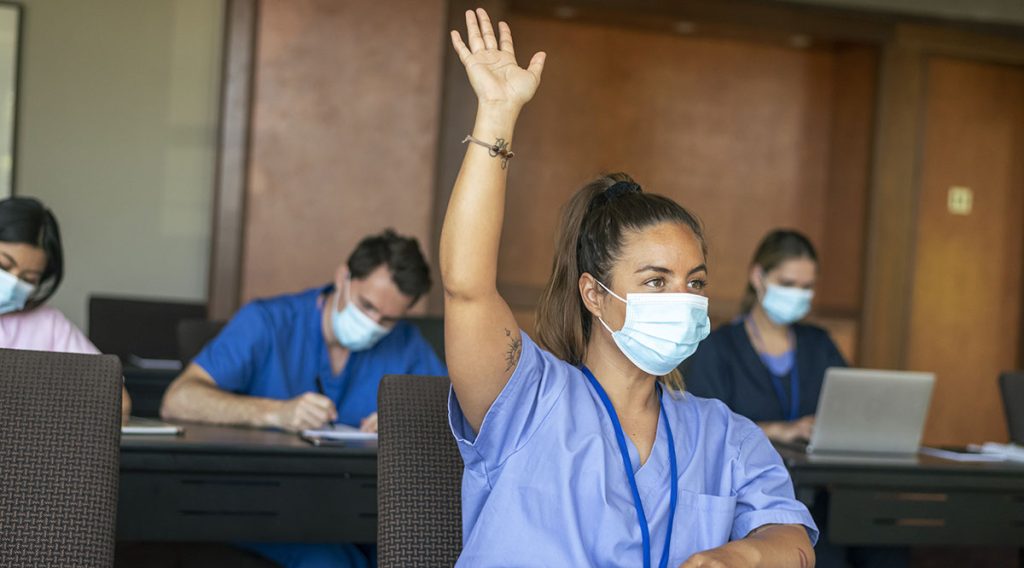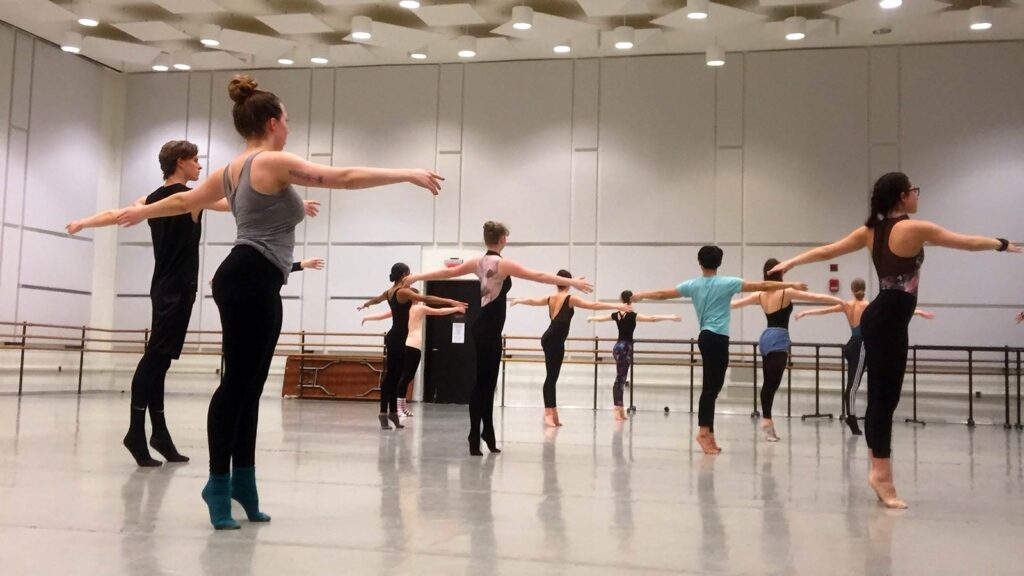Welcome to a detailed list of top Medical schools in Belize. In this article we will provide an overview of Medical Schools in Belize, highlighting their educational programs, accreditation status, and the opportunities they offer to students.
Medical education is a crucial aspect of healthcare systems worldwide, ensuring the supply of skilled and competent physicians.
Medical education encompasses a comprehensive curriculum that covers pre-medical courses, basic sciences, clinical rotations, and specialized training in various medical disciplines.
It also involves practical experiences, such as internships and residency programs, to ensure hands-on learning and exposure to real-life healthcare scenarios.
Belize, a small country located in Central America, has made significant strides in developing its medical education sector.
In recent years, Belize has emerged as an attractive destination for aspiring medical students due to its reputable medical schools. These medical schools collaborate with international institutions and adhere to global standards in medical education.
By examining the medical education landscape in Belize, we can gain valuable insights into the country’s commitment to training future healthcare professionals and its potential as a hub for medical education in the region.
M.D. course in Belize has a duration of four years and covers both basic and clinical medical sciences.
The basic medical sciences encompass the fundamental principles of diseases, available therapies, and the legal and ethical aspects of practicing medicine.
The clinical medical science component includes specialized areas such as Pediatrics, Surgery, Psychiatry, Internal Medicine, Obstetrics & Gynecology, and various elective options.
Requirements to study Medicine in Belize
The specific requirements to study medicine in Belize may vary slightly among different medical schools. However, here are the general requirements that students typically need to fulfill:
- Academic Qualifications: Students should have completed their secondary education or its equivalent, usually with a high school diploma or equivalent qualification.
- Pre-Medical Courses: Medical schools in Belize require applicants to complete pre-medical courses before they can enroll in the medical program.
These courses typically include subjects such as biology, chemistry, physics, and mathematics. Some schools may also require specific courses like organic chemistry or biochemistry.
- Entrance Examination: Some medical schools may require applicants to take an entrance examination to assess their aptitude and knowledge in relevant subjects. The format and content of the examination can vary, so it is important to check the specific requirements of each medical school.
- English Language Proficiency: As most medical programs are conducted in English, international students or non-native English speakers are usually required to demonstrate proficiency in the English language.
This may involve providing scores from standardized English language proficiency tests such as the TOEFL (Test of English as a Foreign Language) or IELTS (International English Language Testing System).
- Letters of Recommendation: Medical schools often require applicants to submit letters of recommendation from teachers, professors, or professionals who can attest to their academic abilities, character, and suitability for the medical profession.
- Personal Statement or Essay: Applicants may be required to write a personal statement or essay explaining their motivation for pursuing a career in medicine, their relevant experiences, and their goals in the field.
- Interviews: Some medical schools may conduct interviews as part of the admissions process. The interview provides an opportunity for the school to assess the applicant’s communication skills, personal qualities, and commitment to the medical profession.
It is essential to note that the specific requirements of your school choice and admission procedures may differ among medical schools in Belize.
The List of Accredited Medical Schools in Belize
Belize is home to several accredited medical schools that attract students from around the world.
These medical schools in Belize provide educational programs designed to equip students with the knowledge and skills necessary for a successful medical career.
Here are three prominent Medical Schools in Belize that are recognized and accredited by Medical Bodies:
- Washington University of Health and Science
- Central America Health Sciences University
- Columbus Central University
Washington University of Health and Science
Washington University of Health and Science (WUBS Belize) is a medical school that offers Pre-clinical and Clinical Sciences curricula that are designed to prepare students for licensure and practice in the US or Canada.
WUHS (Belize ) is an accredited medical school and provides students with excellent clinical training, balanced by the development of strong interpersonal and professional skills in medical science.
Students are taught Patient Care, Medical Knowledge, Practical Based Learning, Interpersonal Communications, and Systems-Based Practice.
Washington University of Health and Science is a recognized and Accredited Caribbean medical school:
Central America Health Sciences University
Central America Health Sciences University (CAHSU) is another accredited medical school in Belize founded in 1996. It provides a structured medical curriculum that covers foundational sciences, clinical sciences, and clinical clerkships.
With a curriculum patterned after the US medical profession, CAHSU emphasizes a holistic approach to medical education and aims to produce compassionate and skilled physicians.
This school offers Basic Science programs and Clinical Medicine programs affiliated with renowned hospitals in the United States of America, Belize, and Mexico.
CAHSU is recognized & Accredited by Medical bodies to offer Medical Degrees
Visit the Website for more information.
Columbus Central University – School Of Medicine
The Columbus Central University – School of Medicine (CCUSOM) established in 2006 is a renowned medical school in the Caribbean.
This school offers excellent teaching standards modeled after US medical schools, small class sizes, state-of-the-art lab facilities, qualified and experienced faculty, clinical rotations, mentorship, and more.
At Columbus Central University, students are provided with the values, knowledge, and skills necessary to have a successful and fulfilling career as a medical practitioner.
CCUSOM is accredited(https://ccu.edu.bz/accreditations/) and offers a doctor of medicine (MD) curriculum and this encompasses the fundamentals of medical sciences, clinical competencies, and patient care.
CCU is chartered, registered, and Licensed by the Government of Belize – Ministry of Education:
Visit the Website for more information.
Advantages of Studying Medicine in Belize:
Studying medicine in Belize offers several advantages and unique features that attract students:
- Cultural Diversity and Exposure: Belize is a culturally diverse country, with influences from various ethnic groups and a rich indigenous heritage. Studying medicine in Belize provides students with exposure to a wide range of cultural practices, beliefs, and healthcare systems.
- Wide Range of Medical Conditions: Belize’s geographic location and diverse population contribute to a wide range of medical conditions encountered by healthcare professionals. Studying medicine in Belize allows students to gain exposure to tropical diseases, endemic illnesses, and unique healthcare challenges.
- Affordable tuition fees and living costs compared to other countries.
Medical Education Challenges in Belize
In Belize, medical education faces various challenges and limitations that impact the quality and effectiveness of training.
These challenges can be categorized into three main areas: identification of potential challenges and limitations, need for continuous improvement in infrastructure and resources, and limitations or areas for improvement in the curriculum or training methods.
1. Potential Challenges and Limitations in medical education in Belize
- Limited resources: Belize, being a small country with a relatively small population, often faces resource constraints in terms of funding, facilities, and equipment required for medical education. This can affect the availability of practical training opportunities and access to up-to-date medical technology.
- Faculty shortage: Insufficient numbers of experienced and qualified faculty members can hamper the delivery of high-quality medical education. A shortage of experts in specialized fields may restrict the range of subjects covered and limit the depth of knowledge imparted to students.
- Brain drain: Belize experiences a significant brain drain, where highly skilled healthcare professionals migrate to other countries seeking better opportunities. This loss of experienced professionals can impact the availability of mentors and role models for aspiring medical students.
2. Need for continuous improvement in infrastructure and resources
- Upgrading facilities: Investing in modern infrastructure and technology is crucial to providing an effective medical education. This includes well-equipped laboratories, libraries with access to current medical literature, and simulation centers for practical training.
- Adequate clinical exposure: Collaborations with healthcare institutions, both public and private, can enhance clinical exposure for medical students. This allows them to observe and participate in real-life patient care scenarios, improving their practical skills and decision-making abilities.
- Research opportunities: Encouraging research activities within medical education fosters a culture of evidence-based practice. The availability of research funding, mentorship, and access to research databases can enhance the quality of medical education and contribute to the advancement of healthcare in Belize.
3. Areas for improvement in the curriculum or training methods:
- Relevance and adaptability: Ensuring that the medical curriculum remains relevant to the changing healthcare landscape is vital. Regular curriculum reviews can identify areas that need updating or incorporation of emerging healthcare trends and technologies.
- Interprofessional education: Collaboration between different healthcare disciplines is essential for effective patient care. Integrating interprofessional education into the curriculum can enhance communication, teamwork, and understanding among future healthcare professionals.
- Practical skills development: Emphasizing hands-on training, clinical skills workshops, and simulated patient encounters can enhance practical skills development. Providing students with opportunities to apply theoretical knowledge in a practical setting prepares them for the challenges they will face in real-world healthcare settings.
Addressing these challenges and limitations in medical education in Belize requires collaboration between educational institutions, healthcare providers, government bodies, and international partners.
Belize can strive towards providing high-quality medical education to meet the nation’s healthcare needs.
Conclusion
Medical schools in Belize have emerged as notable institutions for aspiring healthcare professionals, offering accredited programs and valuable educational opportunities.
The country’s commitment to medical education and its efforts to provide quality training is evident in the presence of reputable medical schools.
Studying medicine in Belize provides students with a diverse and culturally rich environment, exposure to a wide range of medical conditions, and affordable tuition fees. While there may be challenges and areas for improvement, the growth and development of medical education in Belize demonstrate the country’s potential as a hub for medical training in the region.
As Belize continues to enhance its medical education infrastructure, it has the opportunity to attract students from around the world and contribute to the global healthcare workforce. Check out the 6 Best Medical Schools in Barbados and the Steps to Take.


